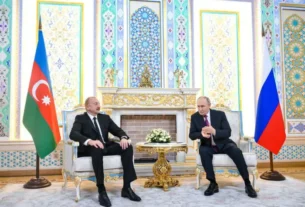Myanmar’s military government has announced January 11 as the date for the second phase of its controversial multi-stage election, according to state media reports on Wednesday. The election, which many international observers have dismissed as undemocratic and illegitimate, is taking place amid widespread political unrest following the 2021 military coup.
The coup, which toppled Nobel laureate Aung San Suu Kyi’s civilian government, has plunged the nation into chaos, sparking a nationwide armed resistance and ongoing clashes between the junta and various pro-democracy and ethnic armed groups.
Despite the junta’s attempt to portray the elections as a step toward stability, dozens of pro-democracy parties have been banned or have chosen to boycott the process altogether. Junta leader Min Aung Hlaing has openly admitted that elections will not be held across the entire country, further fueling skepticism about the legitimacy of the vote.
The first phase of the election is slated for December 28, covering selected regions, followed by the second phase on January 11, extending to around 100 townships, including areas in Yangon, the country’s largest city and economic hub.
However, global leaders remain unconvinced. UN Secretary-General António Guterres remarked on Monday, during the ASEAN summit, that “nobody believes those elections will be free and fair.” While ASEAN, the 11-member bloc of Southeast Asian nations, acknowledged it cannot prevent the elections, its ministers urged that the process should at least aim to be inclusive and transparent.
Myanmar’s junta has faced growing resistance from both established ethnic armies and newly formed militias, many of which now control large parts of the country. The junta’s capacity to hold credible elections is further questioned by reports revealing that a nationwide census was completed in only 145 of 330 townships, estimating Myanmar’s population at 51.3 million.
Adding to the political turmoil, Suu Kyi’s National League for Democracy (NLD)—along with 39 other parties—was dissolved two years ago by the junta-controlled election commission for failing to register under the regime’s rules.
As Myanmar approaches yet another election marred by controversy, fear, and uncertainty, the world watches closely. What’s at stake is not merely political control—but the future of democracy, hope, and freedom for millions of citizens caught in a conflict that shows no signs of ending.




